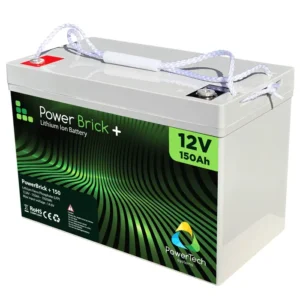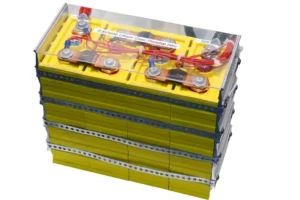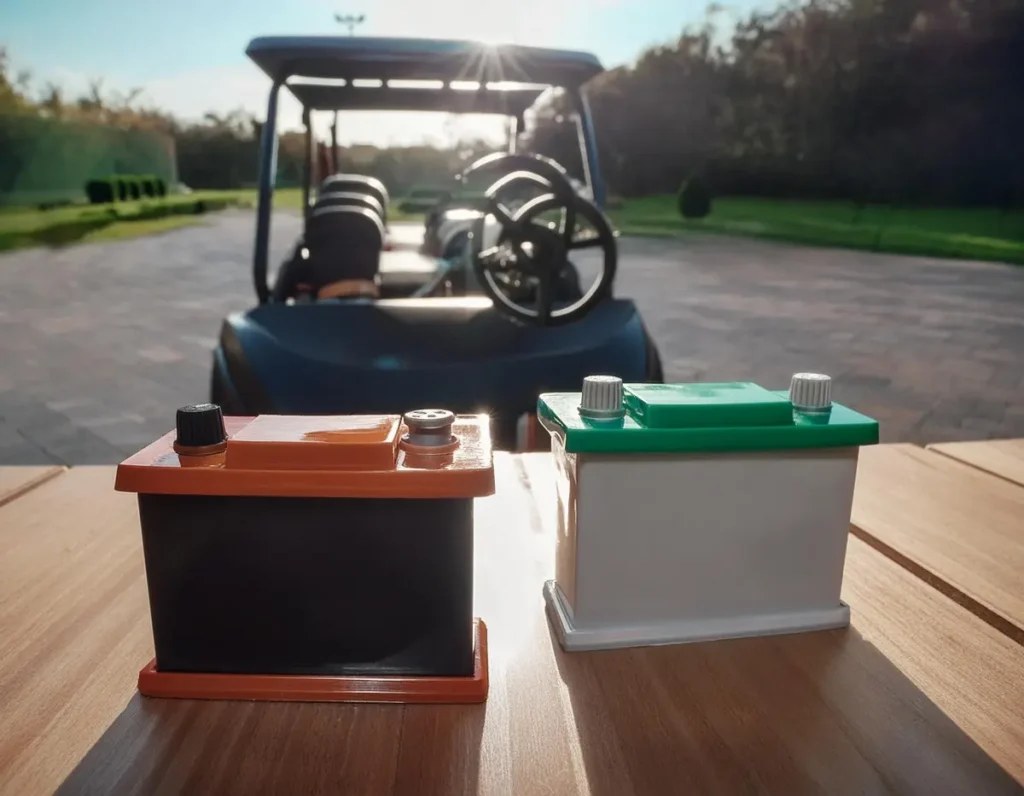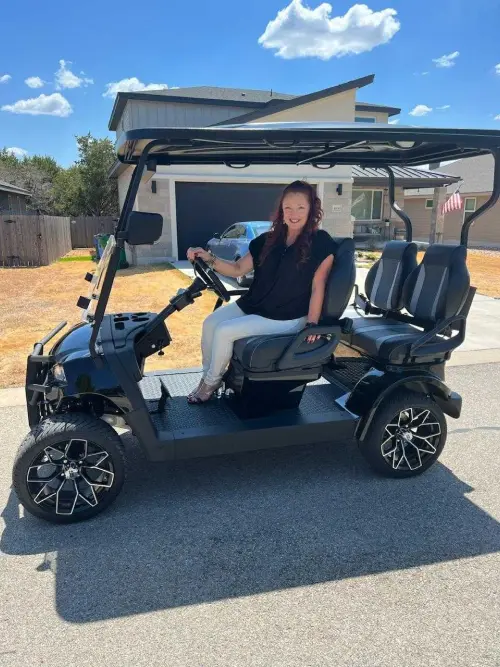The importance of battery design has become increasingly prominent in today’s mobile-centric environment. Emerging technologies such as smartphones, portable power tools such as golf carts, and compact backup power sources, like solar power generators, demand batteries that offer high energy capacity while remaining lightweight for easy portability.
When comparing lithium ion vs lithium iron batteries, manufacturers must weigh factors such as energy capacity, weight, safety, and longevity to determine the most suitable option for their specific applications. Here at Golf Cart of ATX we compare lithium iron phosphate with lithium ion battery for golf carts.
Lithium-ion Batteries
Lithium-ion (LCO) technology was first introduced in 1991 and is commonly used in portable electronic devices.
Lithium-ion (Li-ion) batteries have become increasingly popular due to their superior energy density. This enables them to store more power in relation to their mass or volume compared to other rechargeable battery types. This makes them a preferred choice for various applications, including mobile devices such as smartphones and laptop computers. In addition to their high energy density, lithium-ion batteries are also known for being lightweight and having a low self-discharge rate, allowing them to retain their charge for extended periods.

Lithium-iron-Phosphate Batteries
Lithium iron phosphate battery (LiFePO4) was developed in 1996 with very similar chemistry. Although it initially faced challenges due to low electrical conductivity, improvements later positioned it as a major player in the 2000s. Lithium iron phosphate (LiFePO4) batteries are engineered to offer a higher power density compared to Li-ion batteries, which makes them more suitable for high-drain uses like electric vehicles. Unlike Li-ion batteries, which include cobalt and other toxic substances that can be harmful if not disposed of correctly, lithium-iron-phosphate batteries are considered to be more environmentally sustainable than lithium-ion batteries because they only contain iron. Although they can hold a charge for fewer cycles than Li-ion batteries, they also tend to be more affordable.

Lithium Ion Vs Lithium Iron Phosphate
Regarding battery technology, lithium-ion vs lithium iron phosphate batteries are two prevalent options in the market. Despite both being based on lithium, there are key distinctions between the two that are worth delving into to gain a better understanding of their respective applications. If you’re currently in Austin and seeking golf cart services, you may want to consider engaging with Golf Cart of ATX, a trusted golf cart dealer providing a convenient golf cart service.
Similarities
Operation
Both lithium-ion (Li-ion) and lithium iron (LFP) batteries operate on a similar principle of passing ions between positive and negative electrodes to discharge and charge. They are both rechargeable and use a graphite carbon electrode with a metallic backing as the anode.
Differences
Chemical
LCO batteries have the chemical symbol LiCoO2, and LFP batteries have the chemical symbol LiFePO4. The immediate difference is that one contains potassium, and the other contains cobalt. These core elements are the main active material in these two battery types and give them their distinctive differences.
Life Span
LCO Technology has a relatively short life span, low thermal stability, and limited load capabilities. It requires a slow charge and has a shorter life span. However, it boasts high energy density, no memory effect, and the ability to deliver power over an extended period, making it an ideal choice for smaller electronic devices requiring frequent recharging.
Power
Lithium-iron batteries (LFP) generally have lower power compared to lithium-ion batteries but have a much longer life span. The LCO cycle durability ranges from 400 to 1200 cycles and typically lasts around 13-18 years, whereas LFP batteries can endure around 2000 cycles, theoretically lasting up to 50 years.
Which Is Better?
When considering lithium ion vs lithium iron, both types offer numerous advantages over other rechargeable power sources. Their lightweight design and long shelf lives make them ideal for various applications, including use in portable electronics and electric vehicles.
In a comparative analysis between lithium iron phosphate vs lithium ion battery, lithium-ion batteries demonstrate better energy efficiency, superior energy density, and enhanced versatility, providing distinct advantages. Their efficient energy storage and release capabilities contribute to optimal device performance.
On the other hand, lithium iron phosphate batteries excel in safety and cost-effectiveness, making them particularly well-suited for applications where stability is a priority. The choice between these two types depends on specific needs, but both are reliable sources of energy.

Golf Cart of ATX
Golf Cart of ATX is your ultimate golf cart dealer for all your golf cart needs. As a leading golf cart dealer in Austin, we take pride in offering top-notch golf cart mobile repair service to ensure that you can get back on the road in no time. Whether you are a golf enthusiast looking to buy a golf cart or need reliable repair services, Golf Cart of ATX is your go-to destination.
Our team at Golf Cart of ATX understands the importance of having a fully functional golf cart, and we are dedicated to providing efficient and professional services to meet your needs. If you’re in the market for a golf cart, we offer a wide selection of high-quality golf carts to suit your preferences. Give us a call now, and let us take care of all your golf cart needs.
Frequently Asked Questions
What are the key differences between lithium ion vs lithium iron batteries?
Which type of battery is better for high-drain uses like electric vehicles?
What are the lifespan differences between lithium ion vs lithium iron batteries?
Lithium-ion batteries have a relatively shorter lifespan compared to lithium iron phosphate batteries. While lithium-ion batteries typically last around 13-18 years, lithium iron phosphate batteries can endure around 2000 cycles, theoretically lasting up to 50 years.







